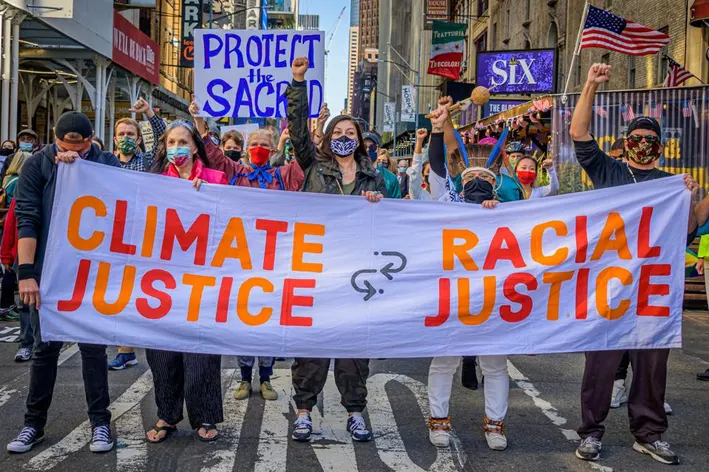
The Impact of Climate Change on Marginalized Communities and the Fight for Environmental Justice
By Adedayo Oyetoke, Published on: May 31st 2023 3 min, 539 word Views: 1397
Climate change is one of the most pressing issues of our time, with far-reaching consequences for the planet and its inhabitants. However, the impact of climate change is not felt equally across all communities. Marginalized communities, including low-income communities, communities of color, and indigenous communities, are disproportionately affected by the effects of climate change. This blog post will explore the impact of climate change on marginalized communities, the concept of environmental justice, and the fight for a more equitable and sustainable future.
The Impact of Climate Change on Marginalized Communities
1. Disproportionate Health Impacts
Marginalized communities are more likely to experience adverse health effects from climate change, including respiratory illnesses, heat-related illnesses, and vector-borne diseases. This is due in part to factors such as poor air quality, lack of access to healthcare, and inadequate infrastructure.
2. Economic Disadvantage
Marginalized communities are also more likely to experience economic disadvantage as a result of climate change. This can include loss of income due to extreme weather events, displacement from homes and communities, and increased costs of living due to rising energy prices.
3. Environmental Degradation
Marginalized communities are often located in areas that are more vulnerable to environmental degradation, such as areas with poor air quality, contaminated water sources, and exposure to hazardous waste. This can have long-term impacts on the health and well-being of these communities, as well as on the local ecosystem.
The Concept of Environmental Justice
Environmental justice is the concept that all people, regardless of race, ethnicity, or socioeconomic status, have the right to a healthy and safe environment. This includes the right to clean air and water, access to green spaces, and protection from environmental hazards. Environmental justice also recognizes that marginalized communities have historically been disproportionately affected by environmental degradation and that addressing these disparities is essential for achieving a more just and equitable society.
The Fight for Environmental Justice
1. Grassroots Activism
Grassroots activism has played a crucial role in the fight for environmental justice, with communities organizing to demand action on issues such as air and water pollution, toxic waste, and climate change. Grassroots organizations have been instrumental in raising awareness of environmental justice issues, advocating for policy change, and holding corporations and governments accountable for their actions.
2. Policy Change
Policy change is also essential for achieving environmental justice. This can include measures such as regulations on greenhouse gas emissions, investment in renewable energy, and funding for environmental cleanup and restoration in marginalized communities. Policy change can be driven by grassroots activism as well as by advocacy from environmental organizations and political leaders.
3. Intersectionality
Intersectionality is a crucial aspect of the fight for environmental justice, recognizing that environmental issues are interconnected with issues of race, gender, and socioeconomic status. This means that solutions to environmental problems must also address issues of social justice and equity, including access to healthcare, education, and economic opportunity.
Conclusion
The impact of climate change on marginalized communities is a pressing issue that requires urgent action. The concept of environmental justice recognizes that all people have the right to a healthy and safe environment and that addressing disparities in environmental degradation is essential for achieving a more just and equitable society. Through grassroots activism, policy change, and intersectional approaches, we can work towards a more sustainable and equitable future for all.
